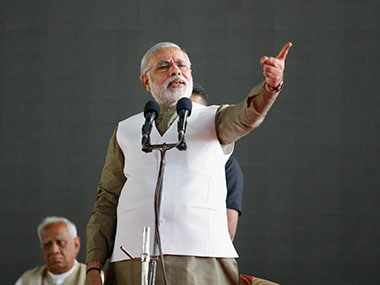Narendra Modi has already laid down the law over what he expects from his netas and babus in terms of work ethic. From 18 hour work days to powerpoint presentations and surprise checks on offices in South block, life under new Prime Minister Modi has been assiduously documented. And now, the new Prime Minister, has taken a leaf out of the UPA’s book and also made it very clear what ethical responsibilities he expects from his new ministers as well. [caption id=“attachment_1565255” align=“alignleft” width=“380”]  Reuters[/caption] The Home Ministry has reissued the code of conduct for ministers that was introduced by former prime minister Manmohan Singh. Under the code, all ministers in the Narendra Modi government will have to submit details of their assets, liabilities and business interests to the Prime Minister within two months. They have also been directed to sever all connections, short of divesting themselves of ownership, with the conduct and management of any business in which they had interests before being appointed minister. The Code, whose observance will be monitored by the Prime Minister, also asked ministers to uphold the political impartiality of civil services and not ask civil servants to act in any way that would conflict with their duties and responsibilities. It also asks the minister to “ensure that his family members do not start or participate in business concerns engaged in supplying of goods or services to the government and there should be total prohibition on employment of spouse and dependents with a foreign mission”. The details to be disclosed by the Minister will consist of particulars of all immovable property and the total approximate value of shares and debentures, cash holdings and jewellery of himself and family members. Such a statement of assets and liabilities could be in respect of the financial year for which the income tax return has already been filed by the Minister. As per the Code of Conduct, after taking office and so long as he remains in office, the Minister shall furnish annually by the 31st August to the Prime Minister a declaration regarding his assets and liabilities for the previous financial year. The Minister will have to refrain from buying from or selling to the government any immovable property except where such property is compulsorily acquired by the government in usual course. Other provisions of the code include the fact that a minister cannot personally, or through a family member, accept contributions for any purpose, irrespective of the purpose. His spouse or dependents should not be allowed to accept employment with a foreign government in India or abroad without prior approval of the Prime Minister. When it comes to accepting gifts during official trips abroad or from foreign dignitaries in India, the code of conduct allows the minister to retain symbolic gifts but divert all other gifts valued above Rs 5,000 each to the toshakhana. The minister would have the option of purchasing such gifts by paying the difference between the value as assessed by the toshakhana and Rs 5,000. With inputs from PTI
The Home Ministry has reissued the code of conduct for ministers that was introduced by former prime minister Manmohan Singh.
Advertisement
End of Article


)
)
)
)
)
)
)
)
)



